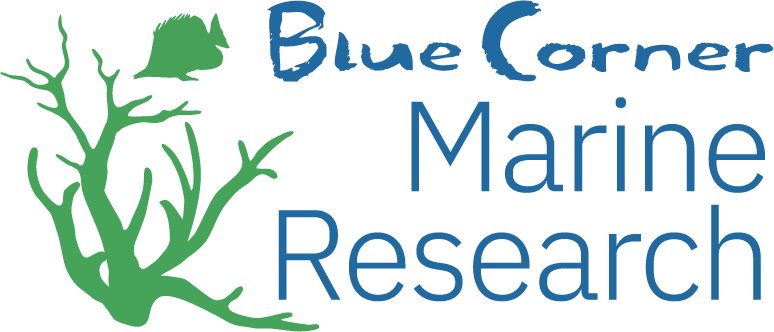Comparison of fish communities between coral restoration sites
Each semester Blue Corner provides research internships to Indonesian university students to train and study coral reefs with us. During the last program intake we had two Indonesian scholarship students join us here at Blue Corner.
During the internship, students join our month-long marine conservation training program. In the following two months they assist our biologists with reef health monitoring, coral restoration and training other students. They also conduct an independent research project supervised by our senior biologists.
Meet student intern: Vincent
Vincent joined our program in 2023, coming from Padjadjaran University in West Java. The focus of his independent project was comparing fish on coral restoration structures of different ages.
Check out his research article Abstract below:
Coral reefs represent beautiful structures and contributes as a food source as well as shelter for nursery, hatchery, and breeding to some aquatic organisms. However, human activities has become one of the main threat to coral reef. Nusa Penida Island is one of the area which affected by anthropogenic factors that resulted in degradation of coral reefs ecosystem. One of the effort that has been taken to restore damaged coral reefs in Nusa Penida is through coral transplantation. Therefore, this research aimed to study the development of fish community structure in Blue Corner Marine Research restoration site located in Nusa Penida Island. The stages of method carried out in this research are underwater visual census and data analysis which cover diversity index, evenness index, and dominance index. Diversity and dominance index on three categories of frame ages in restoration site shown a similar result where the diversity index values indicated a moderate diversity of reefh fish and the dominance index values indicated a community of reef fish without any dominant species. However, the evenness index shown an elevated result where new frames and middle frames indicated unstable condition of reef fish community while the old frames indicated a stable condition of reef fish community. The closer look of several families of reef fish indicator such as Chaetodon, Acanthuridae, Scaridae, Pomacentridae, and Serranidae shown a positive correlation between community structure of reef fish and the development of coral coverage in restoration site.
Want to know more about this research? Contact us to read the full study!

